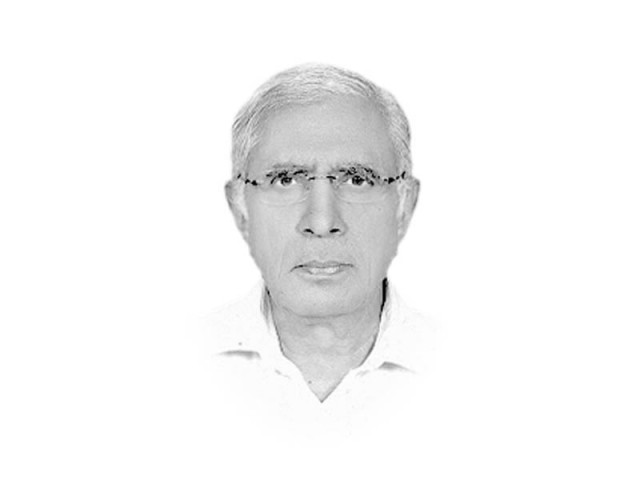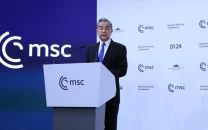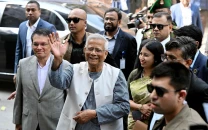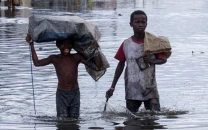Who is minding the store in Islamabad?
Hagel's visit was undoubtedly a fact-finding mission to find out who is actually calling the shots in Pakistan.

The writer is Executive Editor of The Express Tribune
In 2004, when it was still ruling K-P (the then NWFP), North Waziristan was subjected to the first ever US drone attack. And what was the reaction of the MMA government then? Silence, largely. No denouncement of the US, no resignation from the government and no blockade of the Nato supply route.
The MMA remained in the government and gave the military dictator Pervez Musharraf, the architect of the bloody mess the nation is currently being subjected to, the much needed help in getting through the self–serving 17th Constitutional Amendment, which all the three mainstream political parties — the PPP, the PML-N and the ANP — had voted against. The MMA was even prepared to vote for Musharraf in uniform. Even much before the 2002 general elections, a top JI leader had toured the US State Department reportedly to get a feel of US foreign policymakers to the possibility of an MMA government in Islamabad, if the Alliance were to win enough National Assembly seats in the forthcoming elections.
Let us now take a look at the ruling PML-N’s position on these two issues. During the May elections and since it took over the government in Islamabad, the PML-N’s public position on drone attacks has been the same as that of the PTI. But unlike the PTI, it is perceived to have shown no urgency or inclination to formulate a policy to persuade the US to stop these attacks.
Again, during the elections, the PML-N chief, Nawaz Sharif, tried to create the impression that once in the government he would show the same grit as he did when in 1998 he refused to succumb to Washington’s pressure on the nuclear test issue. The nation is still awaiting the promised revisit of Islamabad’s US policy. Interestingly, the promise on a foreign policy issue was made by Interior Minister Chaudhry Nisar on the floor of the National Assembly after Hakimullah Mehsud was killed in a drone attack.
During the May elections, both the PML-N and the JI, for understandable reasons, were wooing the right-of-centre voters, the majority of whom live in Punjab.
In such a political environment, Imran Khan who was also banking on the same right-of-centre voters was left with no option but to resort to a more strident rightist rhetoric in black and white terms, both in his attack against the US and the denouncement of drones than the PML-N and the JI.
And after having won the K-P government on the back of such a passionate rhetoric there was no way Imran could have done anything other than play to the gallery — block the Nato supply route. If he lifts the protest blockade without having achieved his objective, he is certain to lose face and would also certainly suffer serious political damage.
The US does not appear to be in the mood to oblige him. In fact, the decidedly unscheduled Islamabad stopover by the US Secretary of Defence, Chuck Hagel, the other day was undoubtedly a hurriedly planned fact-finding mission to find out who is actually calling the shots in Pakistan. The prime minister, the PTI chief or the GHQ?
And Hagel’s visit to the GHQ to meet our new Chief of Army Staff General Raheel Sharif, though ostensibly to get to know the latter, appears to have partially nullified all that Prime Minister Nawaz Sharif had done, during his last visit to the US, to convince President Obama, the US administration and the Pentagon that he and his civilian government were the ones now calling all the shots in Pakistan, including those concerning foreign and defence affairs and no one else — not even the army chief.
Published in The Express Tribune, December 11th, 2013.
Like Opinion & Editorial on Facebook, follow @ETOpEd on Twitter to receive all updates on all our daily pieces.



















COMMENTS
Comments are moderated and generally will be posted if they are on-topic and not abusive.
For more information, please see our Comments FAQ